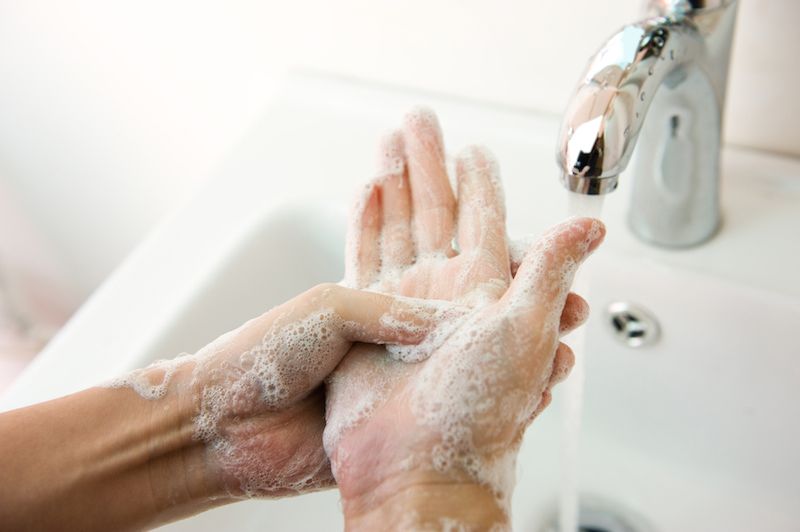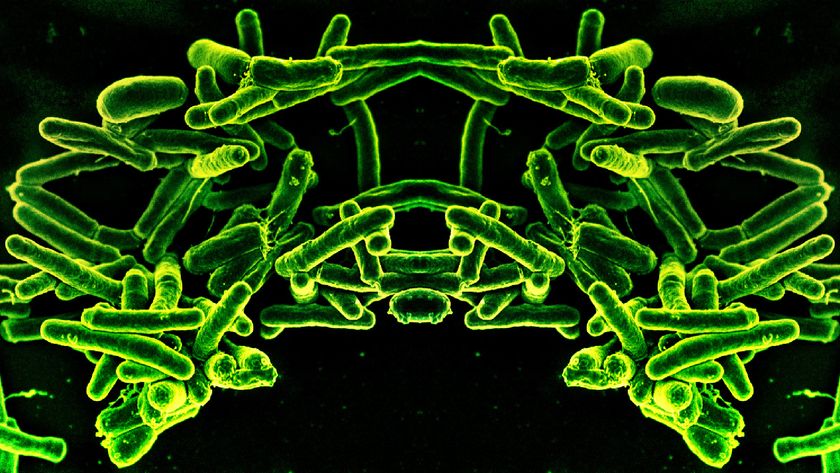Skip the Anti-Bacterial Soap: Regular Suds Work Just as Well

Regular soap is just as effective as anti-bacterial soap at getting rid of germs through hand washing, a new study finds.
This is hardly the first study to find no difference between the two types of soap, but it is the first to test regular and anti-bacterial soaps against 20 strains of bacteria in a lab, the researchers said. The investigators also tested the soaps on people's dirty hands.
In both the lab and the real-life trials, regular soap performed just as well as anti-bacterial soap, which contained the controversial chemical triclosan, according to the study from researchers in South Korea, published online today (Sept. 15) in the Journal of Antimicrobial Chemotherapy. [Top 7 Germs in Food That Make You Sick]
"This study shows that presence of antiseptic ingredients (in this case, triclosan) in soap does not always guarantee higher anti-microbial efficacy during hand washing," the study's senior author, Min-Suk Rhee, a researcher of food bioscience and technology at Korea University in Seoul, South Korea, told Live Science in an email.
The soaps used in the study were identical except for the triclosan, an anti-bacterial and anti-fungal agent developed in the early 1960s that is the most commonly used antiseptic ingredient in soap, the researchers said.
Today, manufacturers add triclosan to an array of products, including toothpaste, shampoo, clothing, kitchenware, furniture and toys, with the goal of reducing or preventing bacterial contamination and growth, the researchers said.
However, triclosan has been linked to several negative effects on health. Research has tied it to antibiotic resistance among germs, and allergies and hormone disruption in people. One study even found that long-term exposure to triclosan might cause cancer in mice.
Sign up for the Live Science daily newsletter now
Get the world’s most fascinating discoveries delivered straight to your inbox.
In response to some of these downsides, the Food and Drug Administration (FDA) issued a proposal in 2013 that asked companies to prove that anti-microbial products were safe for people to use, and that these products were more effective than plain soap and water in preventing the spread of germs.
To investigate, the researchers of the new study tested regular and anti-microbial soaps against a panel of bacteria, including Listeria, Salmonella and Staphylococcus, which were recommended for anti-microbial soap testing by the FDA.
To recreate the conditions of a people washing their hands, the researchers exposed the bacteria for 20 seconds to one of two conditions: regular soap and soap with 0.3 percent triclosan, the maximum amount allowed by law. (Twenty seconds is length of time the FDA recommends people spend washing their hands.)
The researchers conducted the experiment at two temperatures: room temperature (71.6 degrees Fahrenheit, or 22 degrees Celsius) and again at a warmer temperature (104 degrees F, or 40 degrees C).
It's unclear why triclosan didn't outshine regular soap, but perhaps the substance needs more time to do its work, the researchers said. (Indeed, when the soap was left on the bacterial samples for 9 hours, it worked better than the regular soap, the investigators found.) It's also possible that ingredients in the soap hampered triclosan's anti-microbial abilities, the researchers said.
In the second experiment, 16 healthy adult volunteers had their hands doused with bacteria (Serratia marcescens) and then washed their hands with either regular or anti-microbial soap in warm water for 30 seconds. Again, there was no significant difference between the soaps, the researchers found. [12 Worst Hormone-Disrupting Chemicals & Their Health Effects]
The results suggest that manufacturers should scale back claims that anti-bacterial soaps work better than regular soaps, Rhee said.
"If the manufacturer would like to advertise the antiseptic efficacy of their products, they should supply scientific evidence to support the claims," Rhee said.
It's encouraging that researchers are examining triclosan's effectiveness in soap, said Dr. Pritish Tosh, an infectious diseases physician at the Mayo Clinic in Minnesota, who was not involved with the study.
"There's a real issue of increasing antibiotic resistance that we're seeing across the country and across the world," Tosh said. "And a lot of this is related to unnecessary anti-microbial use."
If soap with triclosan has harmful long-term effects, and if it performs no better than regular soap, "it makes us question why these products even exist," he said.
Additional reporting by Sarah G. Miller. Follow Laura Geggel on Twitter @LauraGeggel. Follow Live Science @livescience, Facebook & Google+. Original article on Live Science.

Laura is the archaeology and Life's Little Mysteries editor at Live Science. She also reports on general science, including paleontology. Her work has appeared in The New York Times, Scholastic, Popular Science and Spectrum, a site on autism research. She has won multiple awards from the Society of Professional Journalists and the Washington Newspaper Publishers Association for her reporting at a weekly newspaper near Seattle. Laura holds a bachelor's degree in English literature and psychology from Washington University in St. Louis and a master's degree in science writing from NYU.


